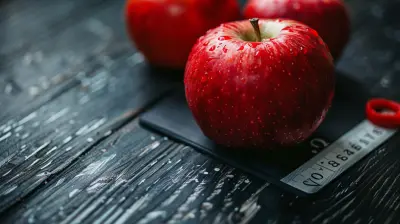Do You Need Supplements While Intermittent Fasting?
24 September 2025
Intermittent fasting (IF) has taken the health and wellness world by storm — and for good reason. Whether it's dropping a few pounds, regulating blood sugar, or just feeling more energetic throughout the day, IF can work wonders. But here’s a question that keeps popping up:
Do you need supplements while intermittent fasting?
Let’s break it down. Supplements? Really? Isn’t fasting just… not eating? Well, not quite.
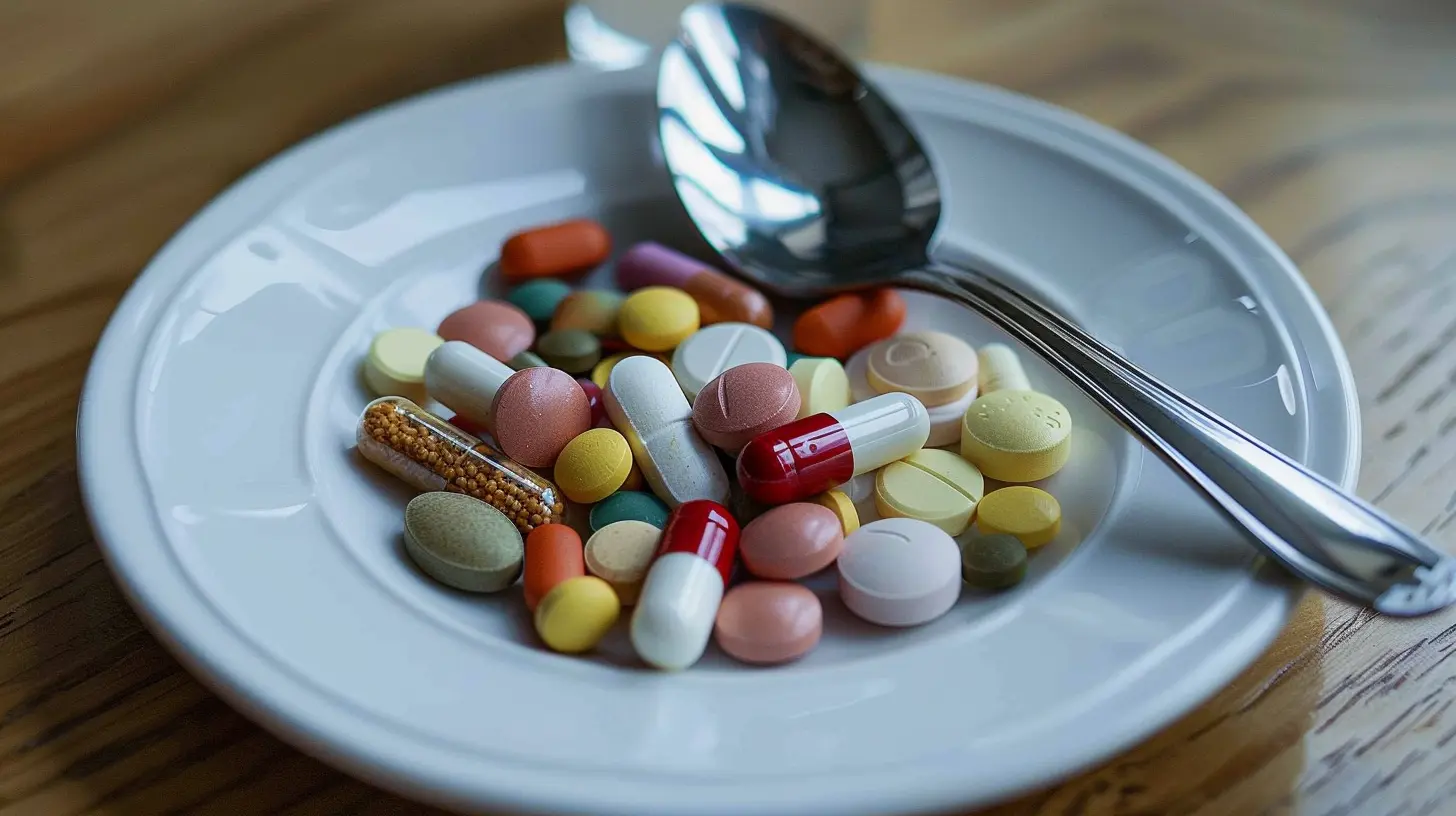
What is Intermittent Fasting, Anyway?
Before we get all deep into supplements, let's make sure we're on the same page.Intermittent fasting isn't a diet — it's an eating pattern. Think of it more like scheduling your meals rather than changing what’s on your plate.
Some popular methods include:
- 16:8 (fast for 16 hours, eat during an 8-hour window)
- 5:2 (eat normally for 5 days, restrict calories for 2 days)
- OMAD (one meal a day — kinda hardcore!)
No matter the method, the focus is on when you eat — not necessarily what you eat.
But here’s the catch: when you go for long periods without food, your body might not get all the essential nutrients it needs consistently. That’s where supplements sneak into the conversation.
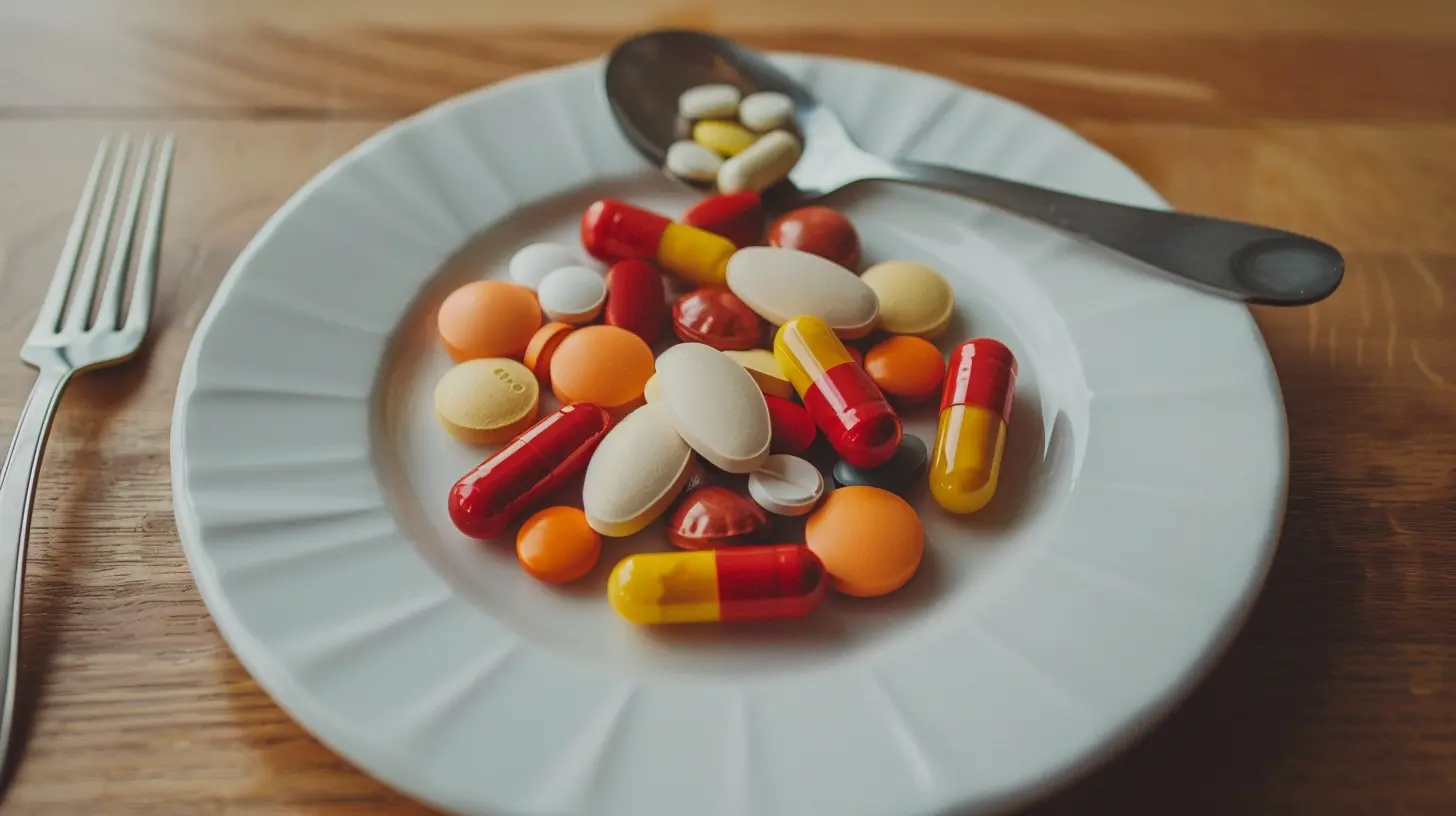
Wait, Won’t Supplements Break My Fast?
This is the kicker, right? You're fasting to give your digestive system a break, so popping pills might seem counterproductive.So, do supplements break a fast?
It depends.
Some do. Some don’t. Some kind of do — but only a little. Confused yet? Let’s clear it up.
Supplements That Generally Don't Break a Fast:
- Electrolytes (sodium, potassium, magnesium — especially in water-soluble forms)- Certain vitamins like B-complex and vitamin D3 (especially if they’re not paired with carriers like oils or sugars)
- Creatine (usually calorie-free and safe during fasting)
- Caffeine & Green Tea Extract (bonus: they can boost energy and fat oxidation)
Supplements That Might Break a Fast:
- Anything with calories (think MCT oil, gummies, or sugary syrups)- Fat-soluble vitamins (like A, D, E, K) — because they’re best absorbed with food
- Protein powders, collagen, and branched-chain amino acids (BCAAs) — these definitely count as breaking the fast due to their caloric load and insulin response
So if your goal is a clean fast, especially for autophagy or gut rest, skip the calorie-rich stuff during your fasting window.
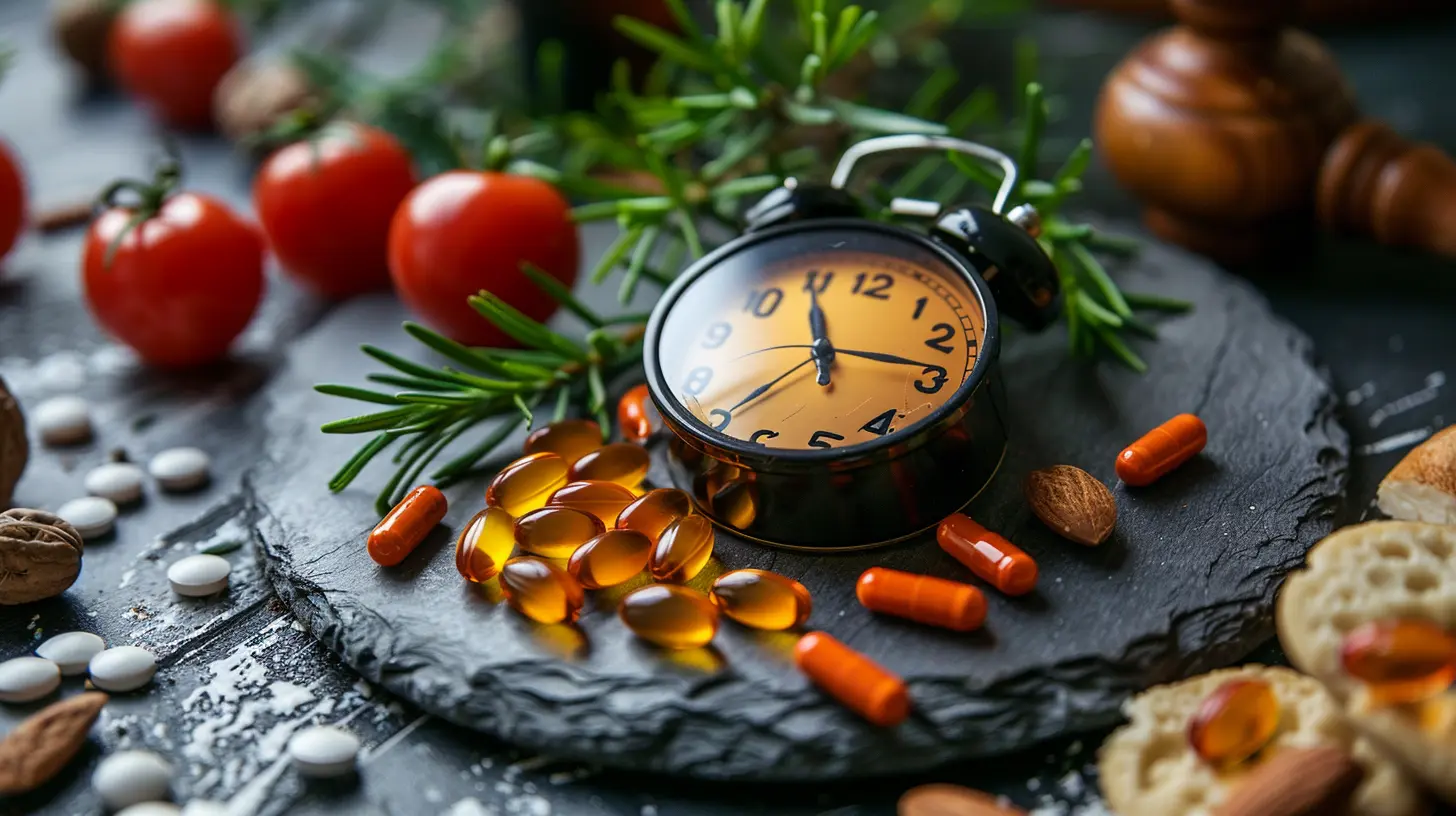
Why You Might Need Supplements While Fasting
Alright, so back to our main question: Do you need supplements while intermittent fasting? Not always. But in some cases, yes, absolutely.Let’s explore a few reasons why:
1. Nutrient Deficiency Risks
Fasting = fewer meals = potential nutrient gaps. If you’re not careful, you might skimp on vital nutrients like:- Iron
- Calcium
- Magnesium
- Zinc
- B12
Especially if your eating window is short, or you’re not eating a variety of whole foods, your body could miss out.
2. Electrolyte Imbalance
Ever get a headache or feel dizzy during a fast? You might be low on sodium or potassium.During fasting, insulin drops, leading to increased excretion of sodium through the kidneys. Translation: you pee out your salts. Not good. That’s why many fasting veterans swear by adding a pinch of pink salt to their water.
A well-balanced electrolyte supplement can help you avoid the dreaded "keto flu" or that mid-afternoon fatigue.
3. Energy and Focus Support
Some folks find it hard to focus or stay energized, especially in the earlier stages of intermittent fasting. In these cases, caffeine, L-theanine, or adaptogenic herbs (like Rhodiola rosea) might help. These don’t replace food, but they can support your mental clarity.4. Support for Fitness Goals
Trying to gain muscle or maintain performance while fasting? Supplements like creatine or collagen in your eating window (not your fasting window, please) can help fuel your fitness efforts.So yes, for people who train hard or live an active lifestyle, supplements can fill the gap that fasting might sometimes widen.
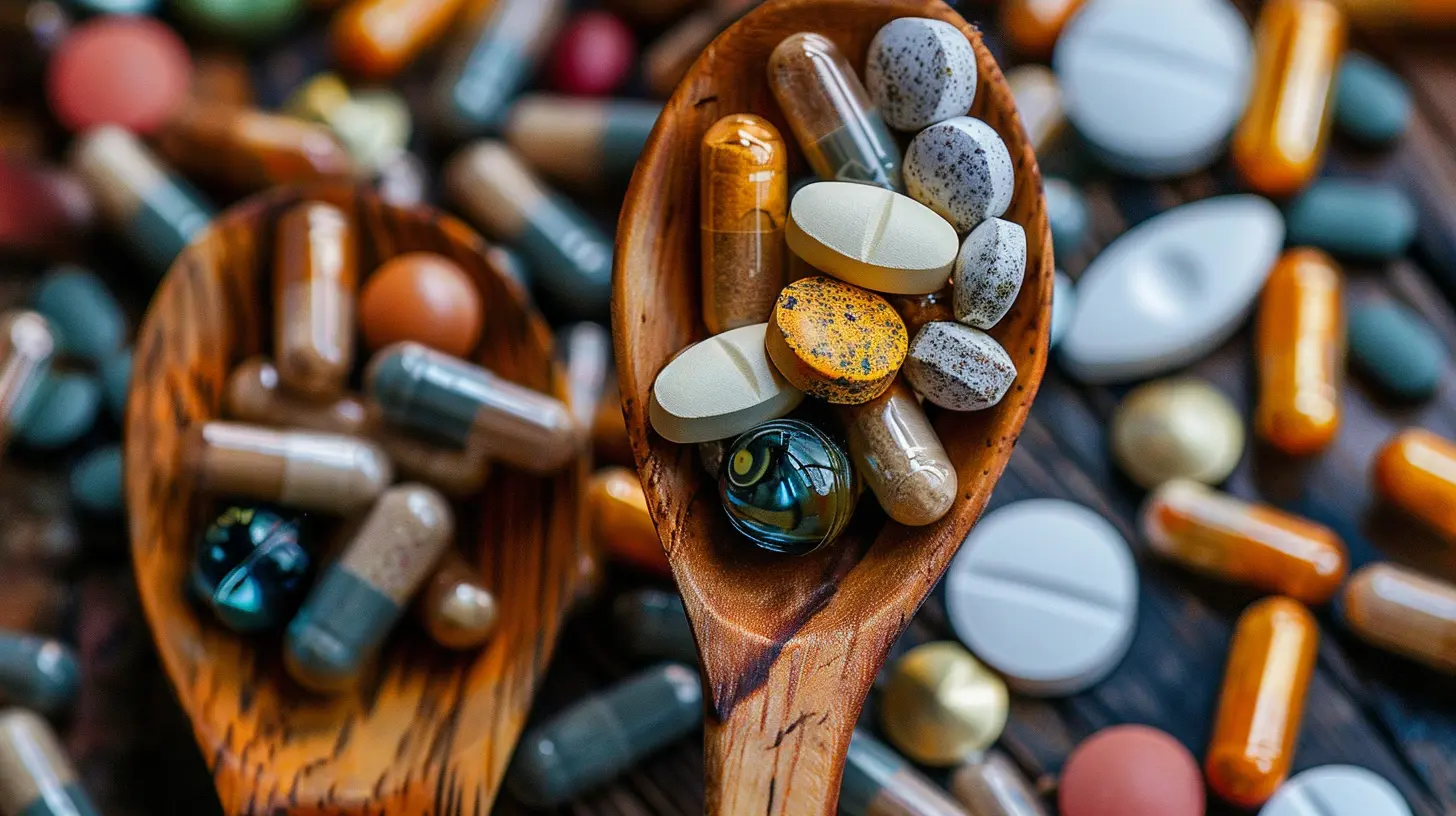
When to Take Supplements While Fasting
Timing matters. Some supplements work well on an empty stomach; others, not so much.Here’s a quick cheat sheet:
| Supplement | Fasting Window | Eating Window |
|------------|----------------|----------------|
| Electrolytes | ✅ | ✅ |
| Water-soluble vitamins (B-complex, C) | ✅ | ✅ |
| Fat-soluble vitamins (A, D, E, K) | ❌ (best with food) | ✅ |
| Omega-3 (fish oil) | ❌ (needs fat) | ✅ |
| Magnesium | ✅ (some types may cause stomach upset) | ✅ |
| Probiotics | ✅ (if well-tolerated) | ✅ |
| Protein / BCAAs / Collagen | ❌ | ✅ |
Remember, if your fasting goal is weight loss and you don’t mind a little insulin response, you can be a bit looser. But if you’re fasting for gut rest, longevity, or autophagy, keep it tight — water, black coffee, plain tea, and supplements with ZERO calories only.
Best Supplements to Consider During Intermittent Fasting
Let’s get into specifics. Here’s a list of supplements worth considering, and why:1. Electrolyte Mix (Sodium, Potassium, Magnesium)
Essential for hydration, nerve function, and keeping those muscle cramps at bay. Especially important if you're also eating low-carb.2. Magnesium
Supports sleep, muscle relaxation, and over 300 metabolic functions. Try magnesium glycinate for better absorption and fewer bathroom issues.3. Vitamin D3 + K2
Especially if you’re indoors most of the time. These are best taken with your largest meal of the day.4. Omega-3 Fatty Acids (Fish Oil)
Great for heart health, inflammation control, and brain function — but needs to be taken with food for absorption.5. Creatine
If you’re working out during a fast, this can help you maintain strength and muscle mass. It won’t break a fast when taken in pure powder form.6. Multivitamin
Handy if your diet isn’t super diverse. Just be mindful of the types included — some may be better with food.7. Probiotics
Gut health matters, especially when you’re fasting — which gives your GI tract a break. A quality probiotic can help maintain a healthy bacterial balance.
Supplements You Can Skip
Not everything in the supplement aisle belongs in your basket. Here are a few you can comfortably bypass:- Meal replacement shakes — Let’s be real. You’re fasting. You don’t need meals in liquid form.
- Fat burners — Often overpriced, overhyped, and under-researched. Fasting itself is already a fat-burning beast.
- Fiber powders — Unless you're struggling with digestion or eating super low-fiber foods, you're probably good.
What If I’m Already Healthy?
Good question. If you’re eating a balanced diet within your eating window, getting sunshine, staying hydrated, and feeling good — you might not need any supplements at all.But let’s be honest — how many of us are truly hitting all the marks every single day?
Supplements aren't a crutch, but they can be a safety net.
Final Thoughts
Do you need supplements while intermittent fasting? The short answer: Maybe.If you’re doing it casually and eating balanced meals, probably not. But if you’re going intense, going long with your fasts, or have specific health goals — then yes, supplements can help you stay on track, feel your best, and cover any nutritional blind spots.
Keep your goals in mind. Listen to your body. And don't be afraid to tweak as you go. After all, fasting is all about finding what works for you — not just following rules for the sake of it.
So, next time you’re sipping black coffee during your fast and wondering whether you need to pop that magnesium pill — now you know.
all images in this post were generated using AI tools
Category:
Intermittent FastingAuthor:

Laurie Barlow
Discussion
rate this article
1 comments
Heidi Gomez
Great article! Understanding nutrients during intermittent fasting is essential for health. Keep up the fantastic work and stay informed!
October 9, 2025 at 3:20 AM

Laurie Barlow
Thank you! I'm glad you found the article useful. Staying informed about nutrients is key to maximizing the benefits of intermittent fasting!
